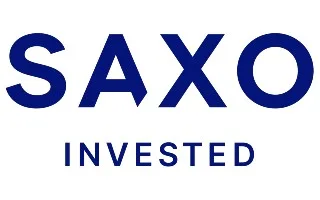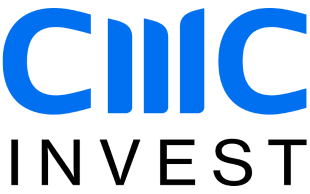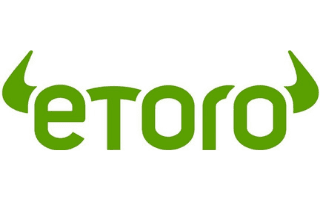523.1p
BP PLC (BP) is a leading oil & gas integrated business with stocks listed in the UK. It opened the day at £524.2pp after a previous close of £522.5pp. During the day the price has varied from a low of 521p to a high of 530.6p. The latest price was 523.1p (25 minute delay). BP is listed on the London Stock Exchange (LSE). All prices are listed in pence sterling.
How to buy shares in BP
- Compare share trading platforms. To buy shares in a company that's listed outside of Australia, you'll need to find a trading platform that offers access to global stock markets. If you're just starting out, look for a platform with low brokerage and foreign exchange fees.
- Open and fund your brokerage account. Complete an application with your personal and financial details, like your ID and tax file number. Fund your account with a bank transfer, credit card or debit card.
- Search for BP. Find the share by name or ticker symbol: BP. Research its history to confirm it's a solid investment against your financial goals.
- Purchase now or later. Buy today with a market order or use a limit order to delay your purchase until BP reaches your desired price. To spread out your risk, look into dollar-cost averaging, which smooths out buying at consistent intervals and amounts.
- Decide on how many to buy. At last close price of £522.5p, weigh your budget against a diversified portfolio that can minimise risk through the market's ups and downs. You may be able to buy a fractional share of BP, depending on your broker.
- Check in on your investment. Congratulations, you own a part of BP. Optimise your portfolio by tracking how your stock — and even the business — performs with an eye on the long term. You may be eligible for dividends and shareholder voting rights on directors and management that can affect your stock.
Our top pick for
US stocks

Our top pick for
Best for beginner

Our top pick for
Dividend investing

BP stock price (LSE:BP)
Use our graph to track the performance of BP stocks over time.BP shares at a glance
| Open | 524.2p |
|---|---|
| High | 530.6p |
| Low | 521p |
| Close | 523.1p |
| Previous close | 522.5p |
| Change | 0.6p |
| Change % | 0.1148% |
| Volume | 18,698,603 |
| 52-week range | 440.9827p - 562.1286p |
|---|---|
| 50-day moving average | 487.905p |
| 200-day moving average | 486.778p |
| Target price | 6.05p |
| PE ratio | 7.5058 |
| Dividend yield | 0.284p (4.36%) |
| Earnings per share (TTM) | 0.69p |
Join the world's biggest social trading network now!
- $0 brokerage for AU, US, Hong Kong and European stocks
- Trades starting from $50
- Fractional shares
- Copy top traders
Compare trading platforms to buy BP shares
Is it a good time to buy BP stock?
The technical analysis gauge below displays real-time ratings for the timeframes you select. However, this is not a recommendation. It represents a technical analysis based on the most popular technical indicators: Moving Averages, Oscillators and Pivots. Finder might not concur and takes no responsibility.
BP price performance over time
Historical closes compared with the last close of 523.1p
| 1 week (2024-04-16) | 1.45% |
|---|---|
| 1 month (2024-03-22) | 4.86% |
| 6 months (2023-10-23) | -1.71% |
| 1 year (2023-04-21) | -1.30% |
|---|---|
| 2 years (2022-04-22) | 33.05% |
| 3 years (2021-04-23) | 79.08% |
| 5 years (2019-04-23) | -10.20% |
Is BP under- or over-valued?
Valuing BP stock is incredibly difficult, and any metric has to be viewed as part of a bigger picture of BP's overall performance. However, analysts commonly use some key metrics to help gauge the value of a stock.
BP's P/E ratio
BP's current share price divided by its per-share earnings (EPS) over a 12-month period gives a "trailing price/earnings ratio" of roughly 8x. In other words, BP shares trade at around 8x recent earnings.
That's relatively low compared to, say, the trailing 12-month P/E ratio for the FTSE 250 at the end of September 2019 (19.71). The low P/E ratio could mean that investors are pessimistic about the outlook for the shares or simply that they're under-valued.
BP's PEG ratio
BP's "price/earnings-to-growth ratio" can be calculated by dividing its P/E ratio by its growth – to give 13.6434. A low ratio can be interpreted as meaning the shares offer better value, while a higher ratio can be interpreted as meaning the shares offer worse value.
The PEG ratio provides a broader view than just the P/E ratio, as it gives more insight into BP's future profitability. By accounting for growth, it could also help you if you're comparing the share prices of multiple high-growth companies.
BP's EBITDA
BP's EBITDA (earnings before interest, taxes, depreciation and amortisation) is £44.2 billion.
The EBITDA is a measure of a BP's overall financial performance and is widely used to measure stock profitability.
BP financials
| Revenue TTM | £208.4 billion |
|---|---|
| Operating margin TTM | 3.04% |
| Gross profit TTM | £70.2 billion |
| Return on assets TTM | 5.82% |
| Return on equity TTM | 18.85% |
| Profit margin | 7.31% |
| Book value | 4.176p |
| Market capitalisation | £87.2 billion |
TTM: trailing 12 months
BP's environmental, social and governance track record
Environmental, social and governance (known as ESG) criteria are a set of three factors used to measure the sustainability and social impact of companies like BP.
When it comes to ESG scores, lower is better, and lower scores are generally associated with lower risk for would-be investors.
BP's total ESG risk score
Total ESG risk: 39.4
Socially conscious investors use ESG scores to screen how an investment aligns with their worldview, and BP's overall score of 39.4 (as at 12/31/2018) is pretty weak – landing it in it in the 82nd percentile of companies rated in the same sector.
ESG scores are increasingly used to estimate the level of risk a company like BP is exposed to within the areas of "environmental" (carbon footprint, resource use etc.), "social" (health and safety, human rights etc.), and "governance" (anti-corruption, tax transparency etc.).
BP's environmental score
Environmental score: 21.01/100
BP's environmental score of 21.01 puts it squarely in the 4th percentile of companies rated in the same sector. This could suggest that BP is a leader in its sector terms of its environmental impact, and exposed to a lower level of risk.
BP's social score
Social score: 11.95/100
BP's social score of 11.95 puts it squarely in the 4th percentile of companies rated in the same sector. This could suggest that BP is a leader in its sector when it comes to taking good care of its workforce and the communities it impacts.
BP's governance score
Governance score: 11.44/100
BP's governance score puts it squarely in the 4th percentile of companies rated in the same sector. That could suggest that BP is a leader in its sector when it comes to responsible management and strategy, and exposed to a lower level of risk.
BP's controversy score
Controversy score: 2/5
ESG scores also evaluate any incidences of controversy that a company has been involved in. BP scored a 2 out of 5 for controversy – the second-highest score possible, reflecting that BP has, for the most part, managed to keep its nose clean.
Environmental, social, and governance (ESG) summary
BP PLC was last rated for ESG on: 2019-01-01.
| Total ESG score | 39.4 |
|---|---|
| Total ESG percentile | 81.56 |
| Environmental score | 21.01 |
| Environmental score percentile | 4 |
| Social score | 11.95 |
| Social score percentile | 4 |
| Governance score | 11.44 |
| Governance score percentile | 4 |
| Level of controversy | 2 |
BP share dividends
Dividend payout ratio: 35.97% of net profits
Recently BP has paid out, on average, around 35.97% of net profits as dividends. That has enabled analysts to estimate a "forward annual dividend yield" of 4.36% of the current stock value. This means that over a year, based on recent payouts (which are sadly no guarantee of future payouts), BP shareholders could enjoy a 4.36% return on their shares, in the form of dividend payments. In BP's case, that would currently equate to about 0.284p per share.
While BP's payout ratio might seem fairly standard, it's worth remembering that BP may be investing much of the rest of its net profits in future growth.
The latest dividend was paid out to all shareholders who bought their shares by 14 February 2024 (the "ex-dividend date").
Have BP's shares ever split?
BP's shares were split on a 2:1 basis on 3 October 1999. So if you had owned 1 share the day before the split, the next day you would own 2 shares. This wouldn't directly have changed the overall worth of your BP shares – just the quantity. However, indirectly, the new 50% lower share price could have impacted the market appetite for BP shares which in turn could have impacted BP's share price.
BP share price volatility
Over the last 12 months, BP's shares have ranged in value from as little as £440.9827 up to £562.1286. A popular way to gauge a stock's volatility is its "beta".
Beta measures a share's volatility in relation to the market. The market (LSE average) beta is 1, while BP's is 0.551. This would suggest that BP's shares are less volatile than average (for this exchange).
BP overview
BP p.l.c. provides carbon products and services. The company operates through Gas & Low Carbon Energy, Oil Production & Operations, and Customers & Products segments. It engages in the production of natural gas, and integrated gas and power; trading of gas; operation of onshore and offshore wind power, as well as hydrogen and carbon capture and storage facilities; trading and marketing of renewable and non-renewable power; and production of crude oil. In addition, the company involved in convenience and retail fuel, EV charging, Castrol lubricant, aviation, B2B, and midstream businesses; refining and oil trading; and bioenergy business. The company was founded in 1908 and is headquartered in London, the United Kingdom.
BP in the news

bp unveils first US bp pulse EV charging Gigahub™ at Houston headquarters

BP oil refinery in Indiana resumes normal operations weeks after power outage, temporary shutdown

The Gas Find That Could Transform Europe’s Energy Future
Frequently asked questions
More guides on Finder
-
How to invest in the Tasmea Limited IPO
Everything we know about the Tasmea Limited IPO, plus information on how to buy in.
-
How to buy Blinklab shares
Steps to owning and managing Blinklab shares.
-
How to invest in the Maverick Minerals IPO
Everything we know about the Maverick Minerals IPO, plus information on how to buy in.
-
How to buy Far Northern Resources shares
Steps to owning and managing Far Northern Resources shares.
-
What are the best commodity ETFs on the ASX in 2024?
Commodity ETFs can be used to hedge against inflation. Here's what they do, why they should be on your watchlist and how they can help your portfolio.
-
Best performing stocks on the ASX in 2024 (Updated weekly)
Looking for the best performing stocks in Australia? We update this list weekly.
-
How to buy Gol Linhas Aereas Inteligentes SA ADR (GOL) shares in Australia
Steps to owning and managing Gol Linhas Aéreas Inteligentes SA shares from Australia.
-
Superhero review: ASX and US share trading app
Trade ASX stocks and ETFs with a flat $2 brokerage fee and a low minimum investment of just $10.
-
The cheapest ETFs on the ASX
These ETFs have the lowest fees on the market, but does that make them the best?
-
Alternatives to CommSec: 7 trading platforms to consider
You've heard of CommSec but how does it stack up to the likes of IG, CMC Invest and other players in the market?
Ask a Question
